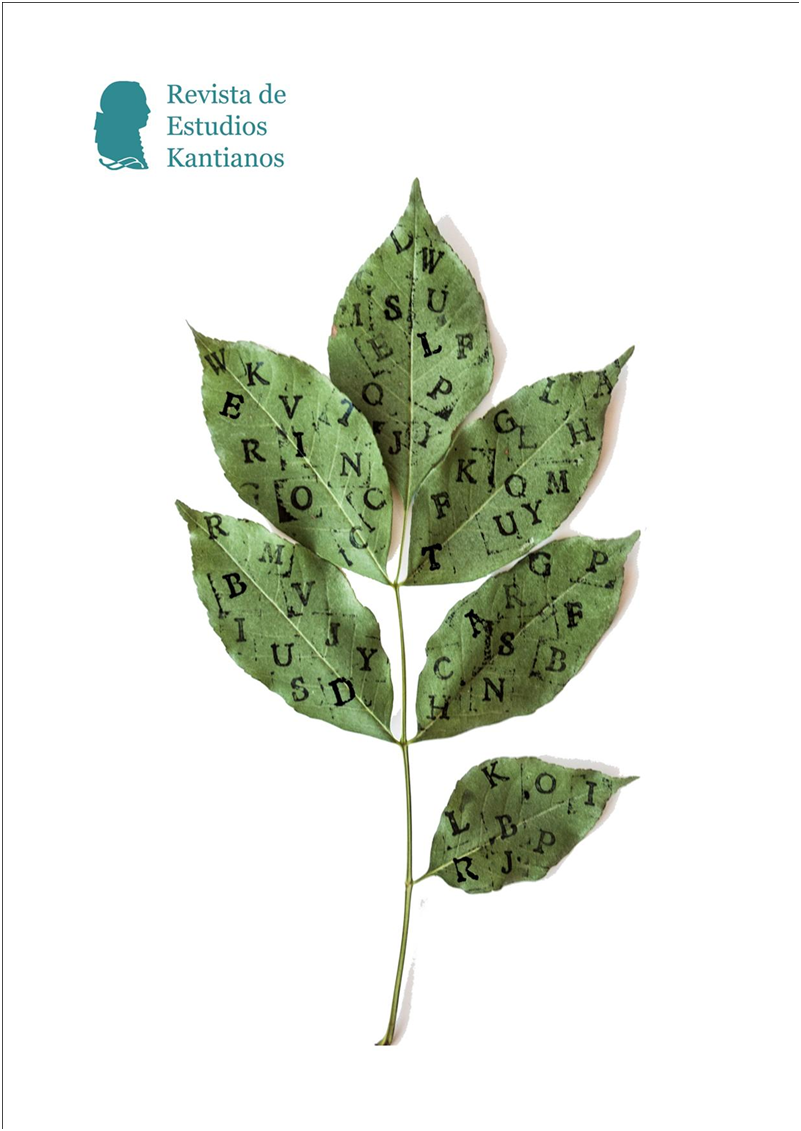Can Kant tell us what to do? Intentions, dilemmas, and the long journey towards moral perfection
DOI:
https://doi.org/10.7203/REK.8.1.23010Palabras clave:
ethics, dilemmas, prima facie duties, perfect and imperfect duties Resumen
Resumen
The “received view” on Kantian ethics holds that perfect duties enjoy absolute priority over imperfect duties. More recently, several Kantian scholars have reassessed this situation, arguing that imperfect duties may remain binding even if they imply breaching a perfect duty. In this article, I argue that both positions rely on a misunderstanding of the bindingness of Kantian duties. Genuine Kantian duties, I claim, remain binding even when they cannot be fulfilled. We must always strive for a total completion of our duties; what it means for us to strive for it, however, will vary depending on our peculiar situation.
 Descargas
Descargas
 Citas
Citas
Akhlaghi, F. (2020). On Moral Obligations and Our Chances of Fulfilling Them. Ethical Theory and Moral Practice, 23, 625-638.
Cholbi, M. (2009). The Murderer at the Door: What Kant Should Have Said. Philosophy and Phenomenological Research, 79(1), 17-46.
Cummiskey, D. (1990). Kantian Consequentialism. Ethics, 100(3), 586-615.
Dietrichson, P. (1968). What Does Kant Mean by ‘Acting from Duty’? In R. P. Wolff (Ed.), Kant. A collection of critical essays (pp. 314-331). Macmillan and Co.
Donagan, A. (1987). Consistency in Rationalist Moral Systems. In C. W. Gowans (Ed.), Moral Dilemmas (pp. 271-291). OUP.
Esser, A. (2008). Kant on Solving Moral Conflicts. In M. Betzler (Ed.), Kant’s Ethics of Virtue (pp. 279-302). de Gruyter.
Foot, P. (1967). The Problem of Abortion and the Doctrine of the Double Effect. Oxford Review, 5, 5-15.
Gregor, M. J. (1962). Laws of Freedom. A Study of Kant’s Method of Applying the Categorical Imperative in the Metaphysik der Sitten. Barnes & Noble.
Harrison, J. (1968). Kant’s Examples of the First Formulation of the Categorical Imperative. In R. P. Wolff (Ed.), Kant. A collection of critical essays (pp. 228-246). Macmillan and Co.
Kleingeld, P. (2018). A Contradiction of the Right Kind: Convenience Killing and Kant’s Formula of Universal Law. The Philosophical Quarterly, 274(69), 64-81.
Kleingeld, P. (2020). A Kantian solution to the Trolley Problem. Oxford Studies in Normative Ethics, 10(2020), 204-228.
Korsgaard, C. (1996a). The Sources of Normativity. CUP.
Korsgaard, C. (1996b). Creating the kingdom of ends. CUP.
Marcus, R. B. (1987). Moral Dilemmas and Consistency. In C. Gowans (Ed.), Moral Dilemmas (pp. 188-205). OUP.
Meerbote, R. (1984). Commentary: Kant on Freedom and the Rational and Morally Good Will. In A. W. Wood (Ed.), Self and Nature in Kant’s Philosophy (pp. 57-73). Cornell University Press.
Ross, D. (1987). Prima Facie Duties. In C. Gowans (Ed.), Moral Dilemmas (pp. 83-101). OUP.
Thomson, J. J. (1985). The Trolley Problem. The Yale Law Journal, 94, 1395-1415.
Thomson, J. J. (2008). Turning the trolley. Philosophy & Public Affairs, 36(4), 359-374.
Timmermann, J. (2013). Kantian Dilemmas? Moral Conflict in Kant’s Ethical Theory. Archiv für Geschichte der Philosophie, 95(1), 36-64.
Von Wright, G. H. (1963). Norm and Action. A Logical Enquiry. Routledge & Kegan Paul.
Wood, A. W. (1999). Kant’s Ethical Thought. CUP.
Wood, A. W. (2017). Formulas of the Moral Law. Cambridge Elements.
Publicado
Cómo citar
-
Resumen424
-
PDF160
-
EPUB75
Número
Sección
Licencia
![]()
Los autores que publican en esta revista están de acuerdo con los siguientes términos:
- Los autores conservan los derechos de autor y garantizan a la revista el derecho de ser la primera publicación del trabajo al igual que licenciado bajo una Creative Commons Attribution License que permite a otros compartir el trabajo con un reconocimiento de la autoría del trabajo y la publicación inicial en esta revista.
- Los autores pueden establecer por separado acuerdos adicionales para la distribución no exclusiva de la versión de la obra publicada en la revista (por ejemplo, situarlo en un repositorio institucional o publicarlo en un libro), con un reconocimiento de su publicación inicial en esta revista.
- Se permite y se anima a los autores a difundir sus trabajos electrónicamente (por ejemplo, en repositorios institucionales o en su propio sitio web) antes y durante el proceso de envío, ya que puede dar lugar a intercambios productivos, así como a una citación más temprana y mayor de los trabajos publicados (Véase The Effect of Open Access) (en inglés).








